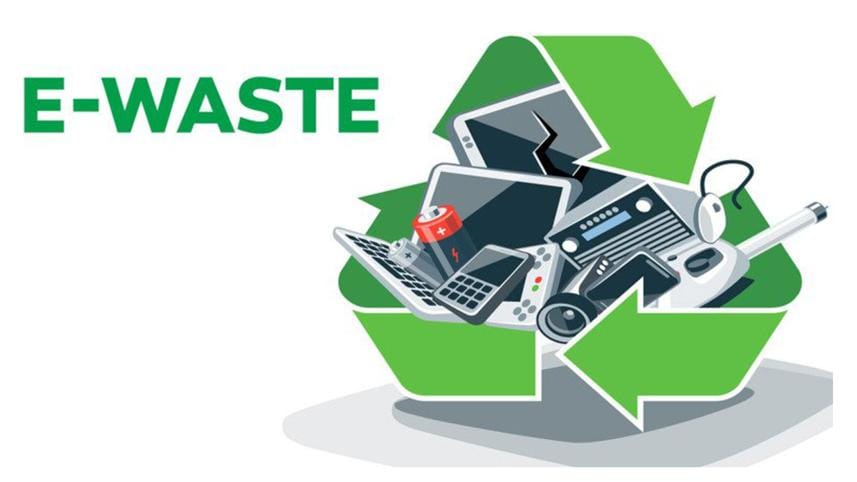E-waste can be valuable resources if recycled effectively

E-waste, which witnessed a rapid growth in Bangladesh posing an environmental challenge, can be turned into valuable resources through effective recycling and reprocessing methods, according to experts.
"I don't consider e-waste as waste. I think it is a resource as you get so many valuable materialsin it," said Rowshan Mamtaz, a professor at the civil engineering department of the Bangladesh University of Engineering and Technology.
"One of my students brought me some gold for a nose stud extracted from only a few laptops. But the challenge is that how you manage, preserve and extract it," she added.
She said select e-wastehave been shipped to Japan and Singapore due to the absence of a recycling mechanism in the country.
"Besides, we need to have a collection system in place so that people don't throw e-waste into bins with other wastes. City corporations can develop a mechanism for it," she said.
This is how it can be a resource instead of piling up in landfills and posing environmental risks, she added.
She recommended setting up a plant in a high-tech park in the country so that the valuable materials can remain in Bangladesh and as well as generate employment.
Mamtaz was speaking at a roundtable titled "Bangladesh at risk due to E-waste: causes and solutions" organized by Bangladesh ICT Journalist Forum (BIJF) at the Sonargaon hotel in Dhaka.
Electronic waste or e-waste refers to discarded electronic devices such as computers, smartphones, televisions, ovens, and other electronic equipment.
She termed current recycling methods being used in the country improper and risky.
"I have seen a person dismantling an e-waste with his wounded hand without protective gear. He doesn't even know that the lead metal in the device could trigger a big health risk for him," said Mamtaz.
Improper management of electronic waste poses significant environmental risks that need to be addressed urgently, said Syed Akhter Hossain, head of the department of computer science and engineering at the Canadian University of Bangladesh.
"Currently, the annual rate of e-waste production is surging at about 30 per cent in Bangladesh," he said.
Products which have been scrapped and are second-hand from developed countries are illegally being imported in Bangladesh and the rate of such imports is increasing, he said.
E-waste from different electronic devices contain hazardous substances such as lead, mercury, cadmium and brominated flame retardants and improper disposal has significant environmental consequences, said Hossain.
Besides, mobile phones and tablets contain precious metals like gold, silver and palladium and improper disposal leads to the loss of these valuable resources, he said.
Hossain called for strong legislation and regulations to address e-waste management.
"These laws should outline responsibilities for various stakeholders, such as producers, consumers, and waste management entities, and provide guidelines for proper collection, recycling, and disposal of e-waste," he said.
"Governments and organisations can set up collection systems to facilitate the proper disposal and recycling of e-waste. This includes designated drop-off points, collection centres, and periodic e-waste recycling events," he added.
It is also important for people to show commitment to the environment and not throw away devices which have reached the end of their useful life with other wastes, said Md Sayed Ali, deputy secretary to the commerce ministry.
E-waste is generated from every electronic device, so awareness is needed about how it is being managed, said Atiqur Rahman, country director at Dell Technologies for Bangladesh.
There are very few opportunities for professional e-waste management in the country. Therefore, the authorities should be strict on stopping the entry of expired electronic products into the country through illegal channels, he added.
Mohammad Rezaul Karim, managing director at Bangladesh Hi-Tech Park Authority, Koushik Jana, business development manager at HP Bangladesh, Md Mahfuzul Alam, a deputy director at Bangladesh Telecommunication Regulatory Commission, Naznin Nahar, president at the BIJF, and Sabbin Hasan, general secretary, were present.
Shafquat Haider, executive committee member of the SAARC Chamber of Commerce and Industry (Bangladesh), moderated the event.



 For all latest news, follow The Daily Star's Google News channel.
For all latest news, follow The Daily Star's Google News channel.
Comments